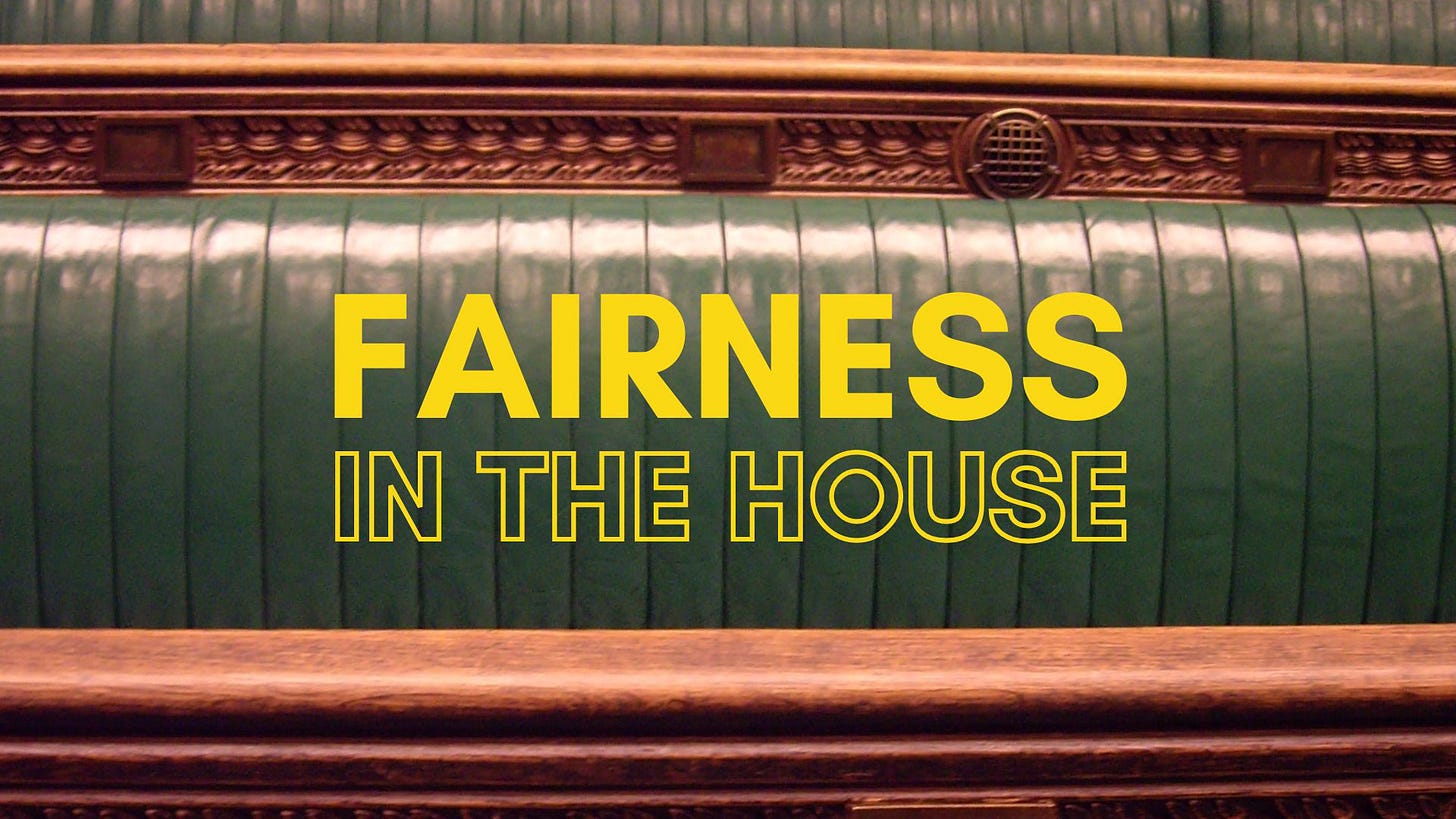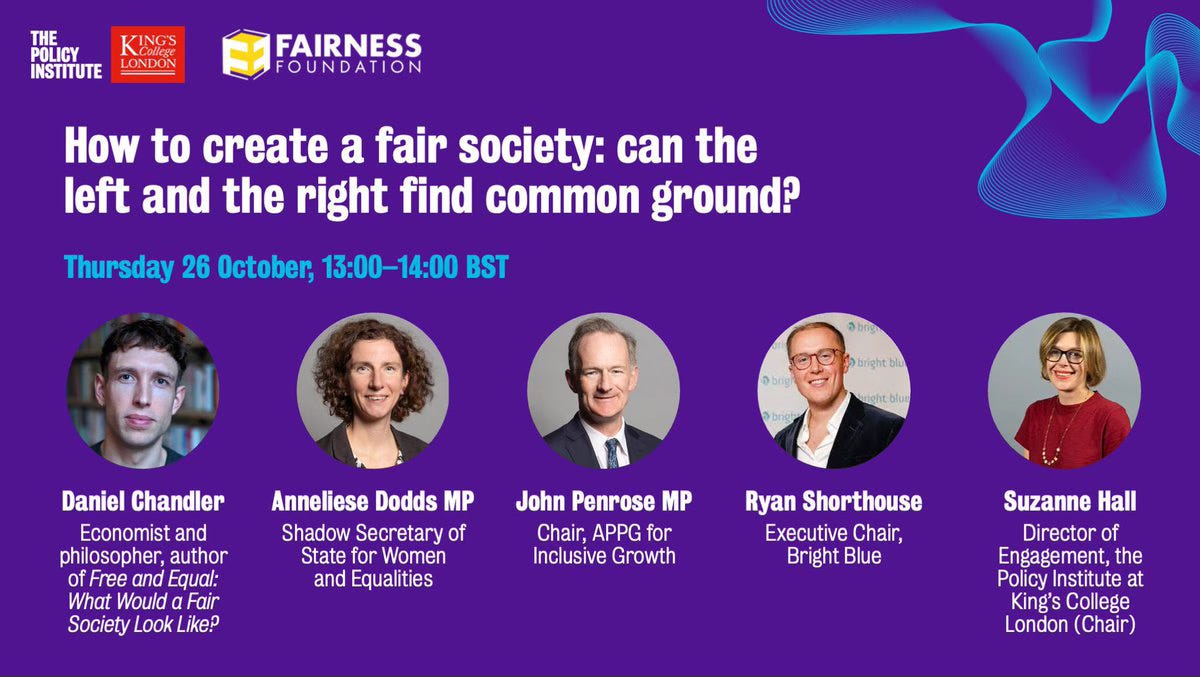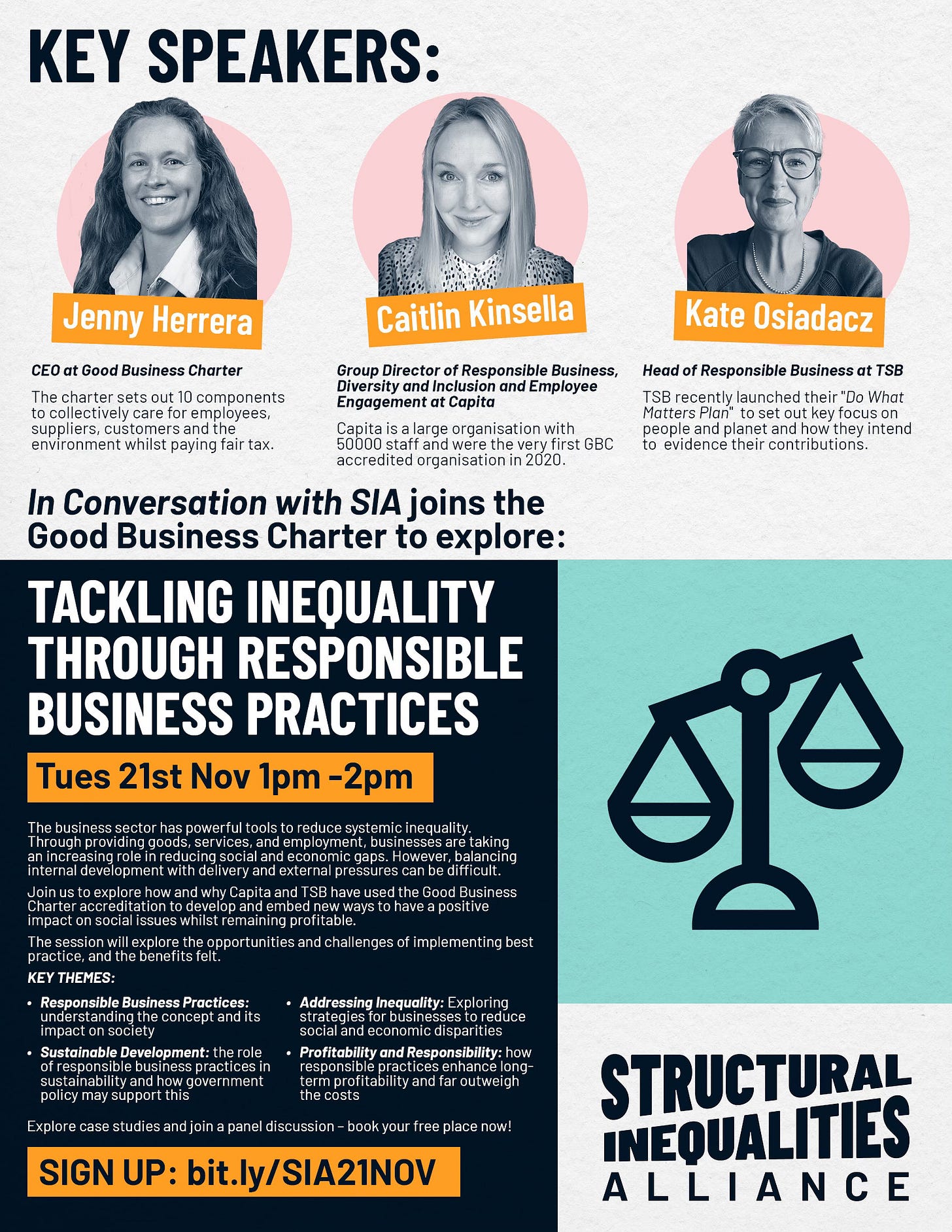Fairness in the House
What do politicians in the UK mean when they talk about fairness, and what can this tell us about the prospects for agreeing on what a fair society looks like?
25 YEARS OF FAIRNESS IN PARLIAMENT: 1998-2023
What do politicians in the UK mean when they talk about fairness, and what can this tell us about the prospects for agreeing on what a fair society looks like? An analysis of discussions referencing fairness in UK parliaments shows that the idea of fairness is shared, but it is conceptualised in very different ways.
A key objective of the Fairness Foundation is to explore the extent to which it is possible to build and popularise a vision of a good society in the UK based around fairness, which appeals to people of varying political views by, for example, blending individual agency with the need to reduce inequality.
It’s useful to understand how politicians think and talk about fairness. Do politicians from different parties have completely opposing conceptions of fairness, or is there at least the potential to identify and build a consensus? Has this changed over time, and does it vary between the various parliaments of the UK?
To find out, we commissioned Paul Hebden at Campaign Salience to conduct a quantitative and qualitative analysis of all 16,000 mentions of the term “fairness” in the UK’s parliaments over 25 years, spanning the period from mid-1998 to mid-2023, via theyworkforyou.com (a project of MySociety).
We asked Paul to look at four questions:
How is the word “fairness” used by politicians in the UK? What do they mean when they talk about fairness?
To what extent do politicians explicitly or implicitly align fairness with equality (and unfairness with inequality)?
What forms of equality or inequality (e.g. class, race) are they talking about, and in relation to what issues (e.g. housing, health)?
How do the ways in which fairness is talked about vary by political party, over time, or by country of the UK?
How often do politicians talk about fairness?
There is a shared language of fairness in UK politics. Overall, mentions by politicians of the term “fairness” increased in frequency during the 25 years from 1998 to 2023. Parties with a smaller number of politicians mentioned fairness more often (as a proportion of seats held) than parties with larger numbers of politicians.
Recommendation: RESEARCHERS should look in more detail at how related concepts have been discussed in UK Parliaments, such as equality and inequality, meritocracy, social mobility and so on.
Who do politicians think is ‘entitled’ to fairness?
Different parties talk about fairness in relation to different groups. Politicians on the right talk about fairness in relation to very clearly defined groups, such as taxpayers and hard-working families (with other groups in society implicitly outside this ‘bargain’). Left-wing politicians are less precise about which groups are ‘entitled’ to fairness.
Recommendation: POLITICIANS should consider whether talking about fairness in a more unifying (and united) way might be more aligned to public attitudes and might encourage better policy-making. Most people in Britain think that fairness is about giving everyone a chance to maximise their potential; it is a unifying vision that applies to everyone in society. However, politicians of all parties often talk about fairness specifically in relation to working people, which by implication excludes those who are unable to work. We need a broader conception of fairness that includes everyone and recognises that we do not live in a ‘perfect’ meritocracy.
What other values do politicians link to fairness?
A range of aligned and competing values are cited alongside fairness. Left-wing politicians frequently refer to fairness and equality, justice and opportunity. Right-wing politicians are more likely to mention transparency alongside fairness, as well as freedom and responsibility. Politicians of all parties also mention equity and balance alongside fairness.
Recommendation: CAMPAIGNERS should ensure that their advocacy to politicians from different parties and with varying beliefs aligns to those politicians’ values and priorities.
You can read the full report on our website.





